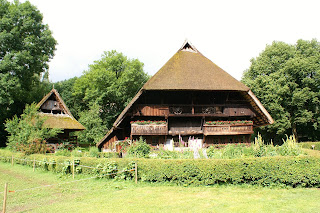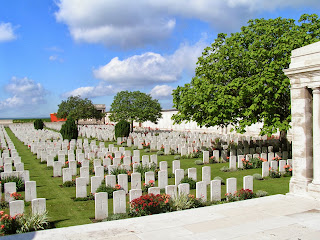Dear William,
I may call you William,
mayn't I? I have known you a long time after all. Please stop
turning in your graves. This is a very unhealthy habit for someone
who is over seven hundred years old and already divided into four
quarters. Let me reassure you that no historically knowledgeable
Scot ever took seriously your so-called biography by that Australian.
(Australian,
William, is a modern word meaning a descendant of
criminal outcasts.)
We know that you did not
wear a kilt, paint your face, shoot arrows, attack
stockades or meet the Queen of England. (In fact William, it was
Sitting Bull, a more modern person than you, who did all of these
except wear a kilt.) We also know that you were not called
Braveheart; that
was a turncoat French contemporary of yours.
 Your name was not really
Wallace either. It was le
Walys. You were descended from a travelling companion of
the French knight Walter Fitzallan, later known as Stewart, who
arrived in Scotland in 1136. Your home at Elderslie was a quite
presentable manor house and not a peat-roofed shack. You were well
educated and spoke Latin as well as French, though you probably did
not quote from Tacitus before
battle as the
Australian did.
Your name was not really
Wallace either. It was le
Walys. You were descended from a travelling companion of
the French knight Walter Fitzallan, later known as Stewart, who
arrived in Scotland in 1136. Your home at Elderslie was a quite
presentable manor house and not a peat-roofed shack. You were well
educated and spoke Latin as well as French, though you probably did
not quote from Tacitus before
battle as the
Australian did.
You see, William, the
problem is that the truth is rarely politically correct. History
needs to be viewed through a strongly coloured glass that makes it
allegorically relevant to today's political agenda. Given that you
encountered a fair bit of revisionism in your own struggles, I am
sure that you understand that history, first written by the winners,
is then re-written by the government of the day.
William, you may have
noticed that our future is now to be decided by competitive telling
of fairy tales. We are going to mark the seven hundredth anniversary
of Bannockburn by organising a popular vote. You probably know about
Bannockburn, don't you? It was when your successor as Guardian,
Robert 'Braveheart' de Brus, the French usurper of the Scottish
throne and the earldom of Carrick, defeated another bunch of
French-speaking invaders in 1314 near Stirling.
You may find it
ridiculous, William, but nowadays it is generally believed in
Scotland that Bannockburn was fought between the Scots and the
English rather than between rival gangs of Frenchmen. They call your
era 'The Scottish Wars of Independence' when what was really going on
was a struggle to decide which Frenchman should rule what. Honestly,
most folk nowadays don't seem to know that invading Frenchmen took
over England in 1066 and Scotland in 1072 and then spent the next
four centuries trying hold on to both. French was still the language
of the London court and administration for almost a century after
Bannockburn..
William, they want us to
believe that your enemy was called English Edward, not Édouard de
Plantagenet. They want us to believe that his army was led by
barons who spoke English nigh on two hundred years before the English
language evolved into anything recognisable today. They want us to
believe that you and de Brus were both Scottish patriots despite
neither of you being from Scottish families. Most ridiculous of all,
they want us to believe that these things have even the slightest
relevance to how we should govern ourselves today.
William, we are
celebrating the septcentennial of this quarrel between Frenchmen by
having a plebiscite to decide whether Scotland and England should get
a chance to fight each other again properly, this time without French
interference.
Apparently Scotland has
not chosen a Conservative government for ages but has repeatedly had
one imposed on them by the English. This, according to the Scots, is
a bad thing. (Conservative, William, is a modern word which means the
same as feudal baron.)
As it happens, England
does not choose Labour governments either but has repeatedly had one
imposed on them by the Scots. This is a bad thing according to the
English. (Labour, William, is another modern word for feudal baron.
I know, it sometimes confuses me too.) Two of the last three prime
ministers (the modern word for kings) of our United Kingdom have been
Scots and the third one is called Cameron, which suggests he has a
mite more Scottish ancestry than you did, William.
I still don't think it's
a good idea for you to be turning in your graves, but if you did feel
able able to jot down a few lines (in French will do fine,) setting
straight some of this modern pseudo-historical hogwash, the person
you should write to is nowadays called First Minister, not Guardian,
of Scotland, and he stays in Edinburgh.
Yours,
Philip
































